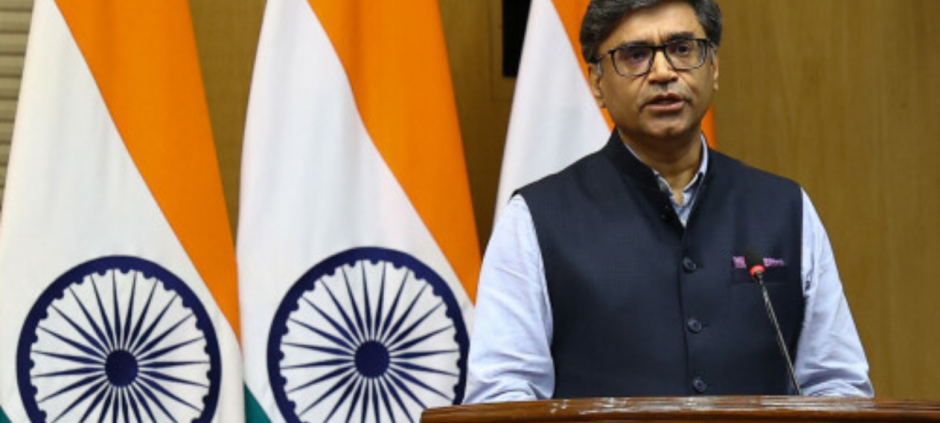India’s Foreign Secretary Vikram Misri has reiterated that the recent ceasefire agreement between India and Pakistan was achieved solely through bilateral efforts—directly contradicting US claims of mediation. Addressing a closed-door session of the Parliamentary Committee on External Affairs, Misri stated the initiative was “entirely between the two nations” and was first proposed by Pakistan on May 10 via military communication channels.
Misri explained that the Director General Military Operations (DGMO) of Pakistan, Maj Gen Kashif Abdullah, reached out through official lines, prompting eventual talks with Indian DGMO Lt Gen Rajiv Ghai. Two rounds of these talks resulted in a mutual agreement to suspend hostilities, particularly along the Line of Control (LoC).
Also Read: Pakistan Reopens Airspace Following Ceasefire Agreement
These remarks dismiss assertions by US President Donald Trump, who had previously credited American diplomacy for brokering peace between the two nuclear-armed neighbours. Misri stressed that Trump’s mediation claims were informal and made via social media, not through established diplomatic avenues. He also noted that Trump had since toned down his language from “mediation” to merely “offering help.”
Tensions between India and Pakistan had escalated after a deadly April 22 attack in Pahalgam, IIOJK, which claimed 26 civilian lives. India blamed Pakistan-based actors, sparking a harsh retaliatory response including the closure of the Wagah border and suspension of the Indus Waters Treaty—moves Islamabad termed as aggressive provocations. Pakistan followed up with Operation Bunyanum Marsoos, reportedly downing six Indian jets and intercepting foreign-made drones.
While Islamabad welcomed what it called “constructive US involvement,” New Delhi continues to firmly downplay any third-party role, underlining its preference for direct engagement with its neighbour.











